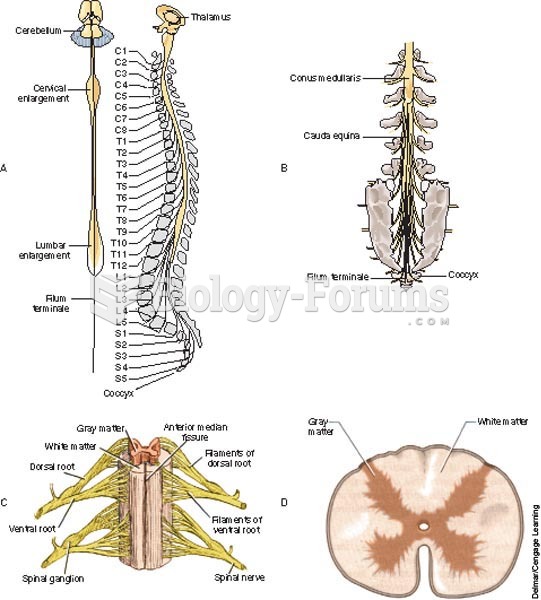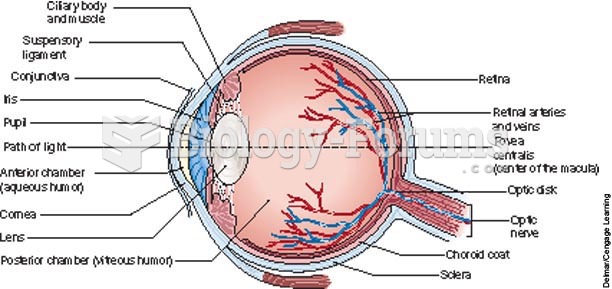|
|
|
Medication errors are three times higher among children and infants than with adults.
People with alcoholism are at a much greater risk of malnutrition than are other people and usually exhibit low levels of most vitamins (especially folic acid). This is because alcohol often takes the place of 50% of their daily intake of calories, with little nutritional value contained in it.
The heart is located in the center of the chest, with part of it tipped slightly so that it taps against the left side of the chest.
The longest a person has survived after a heart transplant is 24 years.
The effects of organophosphate poisoning are referred to by using the abbreviations “SLUD” or “SLUDGE,” It stands for: salivation, lacrimation, urination, defecation, GI upset, and emesis.







